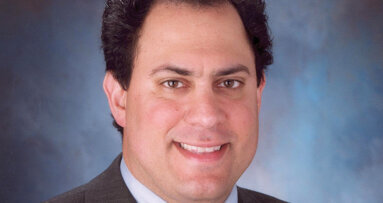In December 2010, Congress extended the so-called Bush-era tax cuts by passing the Tax Relief, Unemployment Insurance Reauthorization, and Job Creation Act of 2010. For many dental practices and high-income households, this has helped to relieve the uncertainty, but it kicked the can down the street to 2013.
For investors, the legislation may represent not true reform but a stay of potential tax increases. While it's true that federal tax rates on income, qualifying dividends, and capital gains have been extended through the end of the 2012 tax year, many of the issues that influenced the tax rate extensions will continue to be the subject of heated discussion. As a result, our orthodontic clients and their investments have been granted a reprieve while Congress works toward sound tax and economic reform.
The ‘can’ won't stay kicked down the road forever
Why should you look at the time between now and 2013 as an opportunity? Because the U.S. budget deficit is at levels that both political parties recognize can't be sustained long-term. In 2010, a presidential budget commission recommended addressing the problem through a combination of spending cuts and tax increases. Though the proposals didn't get enough support to be submitted to Congress, the deficit problem hasn't gone away.
Even if Congress can agree on budget cuts, the possibility of higher taxes in the future can't be ruled out. This why you should look at the time between now and 2013. Any time you have the opportunity to reduce taxes paid and still remain within the guidelines, you have the potential to save more, increase you lifestyle and/or have a greater impact on your retirement goals.
There are several categories of investors who should be paying particular attention to the planning process in the coming years. They include orthodontists with investments that have appreciated substantially in value; retire professionals who rely on dividends and bonds to provide them with ordinary living expenses; and orthodontists who are considering investing in the newly issued stock of a small business.
Capital gains and dividends
The tax cut extensions gave investors who have large unrealized capital gains some breathing room. Rather than a top tax rate of 20 percent, long-term capital gains will generally continue to be subject to a maximum rate of 15 percent.
If you own investments, such as your practice, that have appreciated substantially in value and that now represent a large portion of your total net worth, you have another chance to examine whether it makes sense to sell the practice before the end of 2012.
Taxes obviously are only one factor in making such a decision regarding selling your practice or highly appreciated assets. However, if you've been considering selling an anyway, you've got some time to plan and gradually implement a strategy for doing so.
Two points worth remembering:
1. Unless further action is taken, the top long-term capital gains rate will increase to 20 percent after 2012.
2. Even at the increased level, the rates on those gains would still be relatively low.
To paraphrase Mark Twain, no one is safe when Congress is in session, and there's no guarantee that the top capital gains rate after 2012 might not be increased beyond the scheduled 20 percent maximum.
Other key points to remember:
1. Qualified dividends will continue to be taxed through 2012 at the long-term capital gains rates rather than as ordinary income.
2. The higher your tax bracket and the more reliant you are on dividends for your income, the more you should be aware of the potential impact if that income were subject to higher taxes.
3. Doing a “what-if “analysis may be helpful if you are uncertain the role or impact dividends may have on your portfolio.
2013 and beyond
The nation's financial pressures will almost certainly mean continued adjustments to the tax code as 2013 approaches. Though there are no guarantees about what will happen when the new provisions expire, investors generally have another chance to fine-tune their planning efforts while taxes remain historically low. If a bird in the hand is worth two in the bush, why not get expert help in taking advantage of the opportunities available now?
(Source: RG Capital)
DEXIS, a global leader in dental imaging innovation, has announced the final countdown to its highly anticipated VIP Scan Away Sweepstakes. On August 1, one...
WIESBADEN, Germany/CHARLOTTE, NC, USA: The CEREC system is turning 25! From 26–28 August 2010, CAD/CAM enthusiasts and CEREC users will meet at the ...
ZUG, Switzerland: Swiss manufacturer vVARDIS has raised an additional US$50 million (€43 million*) in funding from global healthcare investor OrbiMed, ...
KRIENS, Switzerland: Dental professionals are expertly positioned to guide patients towards an oral health routine that is both effective and gentle. The ...
Following in the footsteps of the X-Smart Pro+ endo motor, the new X-Smart Go is a powerful cordless device engineered to maximize the performance of ...
The American Recovery and Reinvestment Act of 2009 was signed into law on 17 February with some of the best benefits having limited remaining time ...
Save the date! With a goal to provide an enlightening and informative program that will leave you “In the Know” on many of the most important ...
NATIONAL HARBOR, Md., USA: At the 2017 Annual Session of the American Academy of Pediatric Dentistry at the Gaylord National Resort and Convention Center, ...
NEW YORK, USA: Yesterday, the 2016 Nobel Biocare Global Symposium opened its doors to dental professionals from all over the world in the heart of New York....
CHICAGO, Ill., USA: The Academy of General Dentistry (AGD), a professional association of 38,000 general dentists dedicated to providing quality dental care...
Live webinar
Wed. 4 March 2026
12:00 PM EST (New York)
Munther Sulieman LDS RCS (Eng) BDS (Lond) MSc PhD
Live webinar
Wed. 4 March 2026
1:00 PM EST (New York)
Live webinar
Wed. 4 March 2026
8:30 PM EST (New York)
Lancette VanGuilder BS, RDH, PHEDH, CEAS, FADHA
Live webinar
Fri. 6 March 2026
3:00 AM EST (New York)
Live webinar
Mon. 9 March 2026
12:30 PM EST (New York)
Live webinar
Mon. 9 March 2026
3:00 PM EST (New York)
Live webinar
Tue. 10 March 2026
4:00 AM EST (New York)
Assoc. Prof. Aaron Davis, Prof. Sarah Baker



 Austria / Österreich
Austria / Österreich
 Bosnia and Herzegovina / Босна и Херцеговина
Bosnia and Herzegovina / Босна и Херцеговина
 Bulgaria / България
Bulgaria / България
 Croatia / Hrvatska
Croatia / Hrvatska
 Czech Republic & Slovakia / Česká republika & Slovensko
Czech Republic & Slovakia / Česká republika & Slovensko
 France / France
France / France
 Germany / Deutschland
Germany / Deutschland
 Greece / ΕΛΛΑΔΑ
Greece / ΕΛΛΑΔΑ
 Hungary / Hungary
Hungary / Hungary
 Italy / Italia
Italy / Italia
 Netherlands / Nederland
Netherlands / Nederland
 Nordic / Nordic
Nordic / Nordic
 Poland / Polska
Poland / Polska
 Portugal / Portugal
Portugal / Portugal
 Romania & Moldova / România & Moldova
Romania & Moldova / România & Moldova
 Slovenia / Slovenija
Slovenia / Slovenija
 Serbia & Montenegro / Србија и Црна Гора
Serbia & Montenegro / Србија и Црна Гора
 Spain / España
Spain / España
 Switzerland / Schweiz
Switzerland / Schweiz
 Turkey / Türkiye
Turkey / Türkiye
 UK & Ireland / UK & Ireland
UK & Ireland / UK & Ireland
 International / International
International / International
 Brazil / Brasil
Brazil / Brasil
 Canada / Canada
Canada / Canada
 Latin America / Latinoamérica
Latin America / Latinoamérica
 China / 中国
China / 中国
 India / भारत गणराज्य
India / भारत गणराज्य
 Pakistan / Pākistān
Pakistan / Pākistān
 Vietnam / Việt Nam
Vietnam / Việt Nam
 ASEAN / ASEAN
ASEAN / ASEAN
 Israel / מְדִינַת יִשְׂרָאֵל
Israel / מְדִינַת יִשְׂרָאֵל
 Algeria, Morocco & Tunisia / الجزائر والمغرب وتونس
Algeria, Morocco & Tunisia / الجزائر والمغرب وتونس
 Middle East / Middle East
Middle East / Middle East
























































To post a reply please login or register